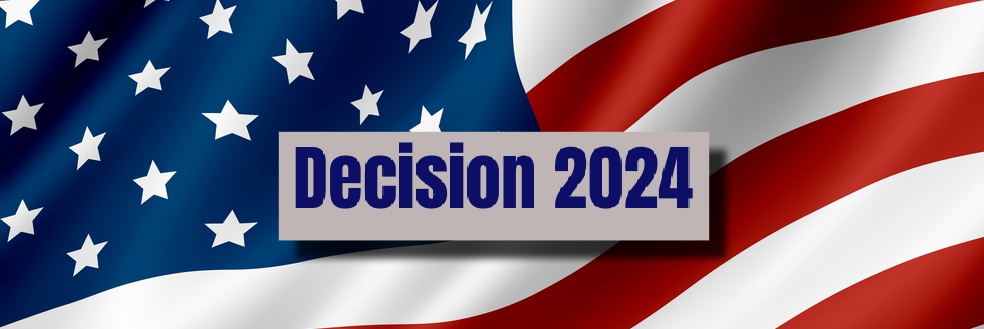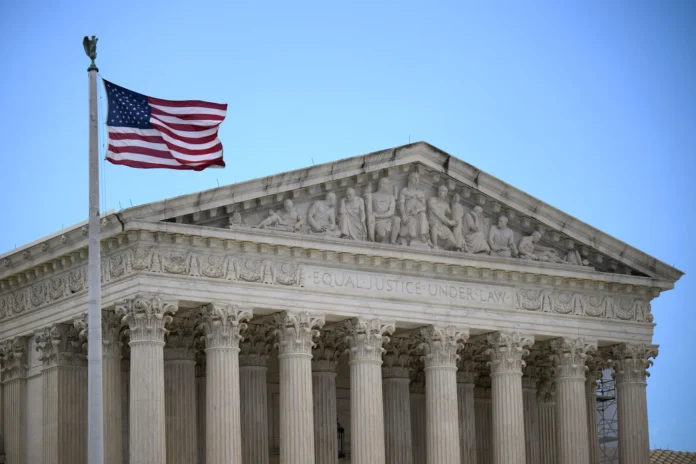
Virginia election officials on Monday asked the Supreme Court to block a ruling by a federal judge that would bar them from reviving a program put in place in August by Virginia Governor Glenn Youngkin intended to remove suspected noncitizens from the state’s voting rolls.
U.S. District Judge Patricia Tolliver Giles on Friday ordered the state to restore the registration of more than 1600 people whom it had taken off the rolls as part of the program, and the U.S. Court of Appeals for the 4th Circuit on Sunday turned down the state’s request to step in.
In an executive order on Aug. 7, Youngkin ordered state election officials to expedite the use of data from the state’s department of motor vehicles to identify and cancel the voter registration of suspected noncitizens unless they could verify their citizenship within 14 days.
A federal court found that that the database flagged and canceled the registration of at least some eligible citizens and that those voters were unaware of the fact that they were no longer able to vote.
The Biden administration, along with civic and immigrant rights groups, went to federal court in Alexandria, Va., on Oct. 11 to challenge the voter-purge program. They argued that it violated the National Voter Registration Act, a 1993 law that generally bars states from “systematically” removing ineligible voters within 90 days of a federal election.
In an order on Oct. 25, Giles barred the state from “continuing any systematic program intended to remove the names of ineligible voters from registration lists less than 90 days before the Nov. 5, 2024, federal General Election,” although she left open the possibility that the state could still remove some voters on a case-by-case basis – for example, those with criminal convictions and those who have died. She also ordered the state to restore the registration of voters whom it had removed from the rolls as part of the program.
The state went to the 4th Circuit, asking it to put Giles’ order on hold. But a three-judge panel made up of two Obama appointees and one Biden appointee denied (as relevant here) that request on Sunday, writing that it was “unpersuaded” that Virginia’s program complied with the NVRA.
Virginia then came to the Supreme Court on Monday morning asking the justices to put Giles’ order on hold by Tuesday.
Erika Maley, the state’s solicitor general, told the court that Giles’ order rests on “a misinterpretation of the NVRA,” because the law’s “quiet period” provision does not prohibit the removal of noncitizens, who were never “eligible” to vote in the first place. “States are free to systematically remove noncitizens, as well as minors and fictitious persons, at any time, including within 90 days of an election, without running afoul of the NVRA.”
But even if the “quiet period” provision did prohibit a “systematic” program that removed noncitizens, Maley continued, its program still would not violate the law because it is based on an “individualized process” that “begins with a personal attestation of noncitizenship” on forms filed with the Virginia DMV and “ends in the removal of that person from the voter rolls only when he is sent two individualized letters offering opportunities” to correct any mistakes about citizenship status.
The state and the public will be permanently harmed if Giles’ order is allowed to remain in effect, Maley insisted, both because the state will be unable to enforce its election laws and because of the prospect that noncitizens will be allowed to vote in the upcoming election. By contrast, Maley argued, any U.S. citizen who is erroneously removed from the rolls can still cast a provisional ballot on election day.
Giles’ order, Maley contended, also violates the Purcell principle, the idea that courts should not change election rules during the period just before an election. That principle, Maley wrote, “applies to eleventh-hour injunctions under the NVRA, particularly where, as here, they order mandatory retrospective relief of adding numerous individuals to a State’s voter rolls past the State’s deadline for doing so and imminently before an election.”
This article was written by Amy L. Howe for Howe on the Court. Howe writes for SCOTUSblog, a blog devoted to coverage of the Supreme Court of the United States.
NEWSLETTER SIGNUP
Subscribe to our newsletter! Get updates on all the latest news in Virginia.



